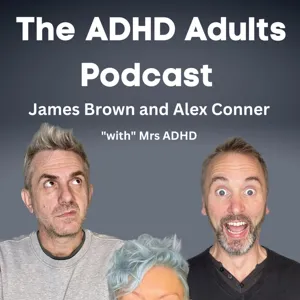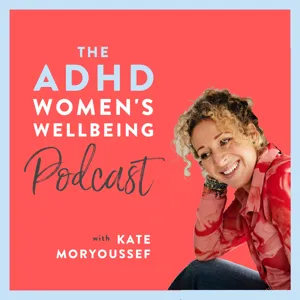#448 A Proven Prescription for Health and Happiness: Why Being Able To Forgive Improves Your Physical & Mental Wellbeing with Dr Fred Luskin

What does the word forgiveness mean to you? If the very idea of letting go of a past hurt makes you feel indignant or upset, then listening to this podcast could be one of the best gifts you give yourself.
Today’s guest wants us all to understand why forgiveness matters for our mental and physical health. Dr Frederic Luskin is a clinical psychologist, researcher and speaker who has been teaching at Stanford University for the past 30 years. As Director of the Stanford University Forgiveness Projects, he has taught tens of thousands of people to live happier and more fulfilled lives through the practice of forgiveness, gratitude and meditation.
Although 20 years old, his book Forgive for Good: A Proven Prescription for Health and Happiness, is as relevant today as it ever was. Based on groundbreaking scientific research, it provides practical strategies for letting go of grudges and resentments. And offers startling insight into the healing powers and medical benefits of forgiveness, and its profound impact on our lives.
Fred explains how our past hurts are stored in our bodies. People who are able to forgive are physically more relaxed. Their blood pressure and central nervous system normalise, their perception of pain lowers, their risk of depression and anxiety goes down. Crucially, their relationships are more open and trusting, so they feel less alone.
This is such powerful knowledge to have. Most of us can probably think of an example where we’ve allowed something that’s happened in the past to sabotage our present. Not letting go of old hurts can be a way of trying to protect ourselves and control the future. But Fred points out this is a coping mechanism to stop us acknowledging when we are vulnerable. True resilience means sitting with that discomfort and learning that it will pass.
Of course this doesn’t mean we don’t have a right to be devastated if our partner has an affair or our boss treats us badly. It’s vital to feel the hurt and process your feelings, says Fred. But if you’re still living in the negative emotions months or years later, it’s time to move on.
If that sounds easier said than done, rest assured that Fred has plenty of inspiring examples and practical suggestions to help you forgive. He is adamant that forgiveness is a choice and a skill anyone can learn. And you start by giving yourself permission to enjoy your present and future, unbound by the past.
I really enjoyed my conversation with Fred and completely agree with him that forgiveness is an undervalued human skill. It may feel hard to access, but it is a brave choice and one that in any given situation will trigger a cascade of rewards. I hope this conversation prompts you to reconsider some of your past hurts and move forwards with self-compassion and freedom.
Dr Chatterjee's Journal https://drchatterjee.com/journal
Thanks to our sponsors:
https://vivobarefoot.com/livemore
Show notes https://drchatterjee.com/448
DISCLAIMER: The content in the podcast and on this webpage is not intended to be a substitute for professional medical advice, diagnosis, or treatment. Always seek the advice of your doctor or qualified healthcare provider. Never disregard professional medical advice or delay in seeking it because of something you have heard on the podcast or on my website.
Hosted on Acast. See acast.com/privacy for more information.










